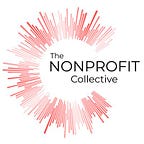We Asked, They Answered: Misconceptions About the Nonprofit Sector
Written by Victoria Shadle
In our Surveying the Field series I spoke with twenty nonprofit professionals with diverse backgrounds and experiences to get a pulse on big picture topics about the sector from everyday nonprofit folk. Guests ranged in age from their early 20s to late 70s, live in a dozen states, and work in a variety of jobs from mid-level managers to CEOs to consultants.
Keep reading to hear guests’ most common answers to our first question: “What do you think are the biggest misconceptions about the nonprofit sector?”
The misconception that all nonprofits are small and volunteer-run.
Stu Manewith, who has worked in and around the nonprofit sector for decades in the Greater Saint Louis Area, said he finds people assume nonprofits are all small and scrappy, not realizing or remembering that many large hospitals and universities are nonprofits as well.
Natalia Jasso, a young nonprofit founder from San Antonio, and Allison Ehrich Bernstein, a communications consultant from Illinois, also brought up this misconception of organizations not being professionalized and having few, if any, paid staff. They both agreed this is not only false, but also damaging for our sector because it leads to organizations being underfunded and understaffed and still expected to deliver impressive results.
In her community in rural Texas, fundraising consultant Pam Anderson has seen the volunteer-run misconception go a step further with people in the community not only assuming staff are volunteers, but believing they should be doing this work for free and should not be paid. Like Natalia and Allison, Pam finds this misconception and the related issue of donors not wanting to fund staff salaries, to be harmful.
“If you don’t want to pay for salaries, how do you expect the project to continue?” — Pam
The misconception that nonprofits cannot be profitable.
Therese F. Martin from the San Francisco Bay Area, Linda Lysakowski from Nevada, and Catherine Lepone from New York all brought up the misconception that nonprofits cannot make a profit. Each with decades of experience in the sector, they found this misunderstanding to be pervasive, sometimes with board members even not understanding that organizations can and do end the year with surpluses that can be used as a cash reserve.
Catherine went a step further to say that nonprofits are not only allowed to have a profit, but it’s beneficial and organizations to try to have a surplus at the end of their fiscal year. She sees the cushion those extra funds provide as crucial to organization during hard times.
“It’s not a dirty word [for nonprofits] to have leftover money at the end of the year — it’s a sound business practice. Look at what we’re going through now [during the pandemic] with nonprofits being shut down because there’s not a cushion, many will be gone because they won’t have these types of reserves.” — Catherine
The misconception that nonprofits are not savvy or strategic.
Consultants Medha Nanal from Silicon Valley and Staci Lowell from Cleveland, Ohio both brought up that people outside the sector often do not believe nonprofits are strategic or data-driven.
“People think grassroots nonprofits are just these little passion projects, but there is a strategy and an art behind it . . . large to small nonprofits are maximizing their budgets, being smart.” — Staci
Allison Ehrich Bernstein, a communications consultant from Illinois, has also found many people believe that nonprofits are only focused on short-term relief, and not long-term or systemic change.
The misconception that working in nonprofits is not a viable career path.
Nicole Gabler, who works in development at a nonprofit hospital in Texas and has a graduate degree in nonprofit administration, has found many people from outside the sector didn’t realize getting an advanced degree specific to this line of work was even an option. Nicole herself didn’t even know working in mission-based organizations was a career path until it was suggested by a mentor that she join AmeriCorps after she finished college — that experience shifted her trajectory from journalism to nonprofit work.
Elicia Hinson, another young professional working in development, found this misconception within her own family when she shared her desire to work in nonprofits and her family was concerned that she wouldn’t be able to find a well-paying job and she would be scraping to get by. Thankfully, Elicia has found this not to be the case and has worked full-time at multiple nonprofits near Tampa, Florida.
The misconception that working at a nonprofit is easier than working in the private sector.
Benjamin J. Sessions, an Executive Director in Salt Lake City, has heard the misconception that working at nonprofits is easier or less intense than the private sector — having experience in both sectors he was quick to confirm that is certainly not his experience.
Zulakha Iqbal from Washington D.C. has also worked in both sectors and sees the day-to-day work in many back-end functions being very similar.
“You could be a marketer in the private sector or for a nonprofit, and at the end of the day you’re doing pretty much the same thing… folks think that we’re cold calling or something, but modern-day nonprofits operate just like corporations whether you’re looking at marketing, operations, or finance. The reality is it’s a lot more business-oriented than most people think.” — Zulakha
What do you think? Did their responses reflect what you think are the biggest misconceptions about the nonprofit sector? Let us know by filling out this form, or emailing us at npcollectiveblog@gmail.com. You can also read guests’ responses in full by looking back at our archive of Surveying the Field posts here.
For more from The Nonprofit Collective, follow us on LinkedIn, Facebook, and Twitter and stay tuned for our next article where I answer this question myself and talk about another misconception that’s not mentioned above.
